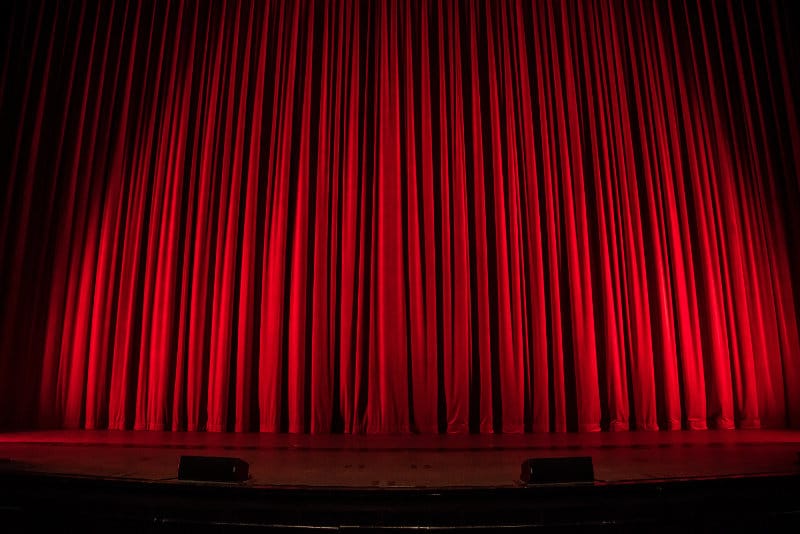How many times were you playing a piece that was going very smoothly, only to lose your grip of it in the most unexpected place, throwing you off and making your performance go downhill? I don’t know about you, but not too few times for me to be honest. At least now though, I can brag that I, mostly, have overcome this hurdle. Mostly… The reason our performance gets worst instead of, say, thrives after a development like this, is because our psychological balance becomes affected. And, as we all know, to heal any psychological wounds in life, it always takes time. Not the case in live performance I’m afraid; not sufficient time to heal things. We need to promptly get on with our playing! In live performance nothing that impacts us psychologically can be immediately rectified. If we were robots of course, this would have been an easy situation; we would just come out stronger from a memory lapse or a finger misplacement, and we would not only have the chance to respectfully continue our performance, but to even improve upon it. So, yes, everything has a tendency to go downhill after a misfortune on stage, but not because we haven’t necessarily prepared our pieces sufficiently prior to our concert, but because our mental balance has been abruptly affected. Is this state of affairs “curable”, however? I think it is. Read on!
❦
And then there’s a very important question that often comes in mind in those situations. How come a situation like this only affects some pianists and not some others as much? Would a wrong note negatively affect Evgeny Kissin, for instance? Would it have had affected Vladimir Horowitz? We all know the answer of course, and the answer is “No”; well, not that much at least. Why? Because those artists knew one thing very well, that escapes the mind of some of us, dare I say, “lesser” pianists; Those giants always maintained that an audience is not in the least interested about the tiny nuances of our performances, but they care about the gestalt of our performances. And what is the gestalt of a performance? The gestalt is the essénce it gives. It’s like you’re holding a rose and you are about to smell it. You don’t care if some of its petals have some tiny imperfections, but you only care about its enchanting aroma and the lasting feeling it will immerse your senses to. Hitting a bump on the road will be forgotten once you’ve reached your destination, but it will feel substantial if you stop and return back home because it rattled your confidence in your driving abilities. So, the masters of any era new in their core the following: That the essénce of their musical journey counted the most and not the hurdles to complete it. Contrary to Kavafis’s Ithaca, in live musical performance we do not care that much about the hurdles of the journey, that, yes, they will undoubtedly make us stronger and cast as experienced, but we care mostly about its end-musical-aroma and its aftertaste. An aftertaste that emanates well after the audience has left the venue. So, how do you ease your performing journey after a stage “road-bump”? Bear in mind that, more often than not, losing the grip of our piece on stage is not directly connected to our overall command of it, as many of us would naturally think; we might have prepared a work to “perfection” only to find out that things do not work as planned on a live setting.❦
As mentioned above, an audience cares about the gestalt of your performance. So, you need to stop and feel this deeply inside you before you pressed any key. This should happen in the practice room. You need to think and contemplate about this gestalt notion in the practice-room, because this is the only way to change your attitude towards your perceived imperfections on stage. Here are some suggestions to consider:- Your perceived stage-mishap is only a subjective one. So, for instance, a wrong note can be deadly to your confidence, only if you allow it to be. People may not have heard it in the first place. And, more often than not, is not as important as you initially thought.
- Audiences tend to remember the good and forget the bad; this happens partly because of our innate human predisposition to see things positively in life.
- You need to decide prior to exposing yourself to audiences of what pianist you ultimately want to be. Do you want to be a fine pianist that people will remember, or you want to stay at home and watch the Leeds on TV cheering the next confident individual?
- Are you going to let the amateurs and the “judges” ruin your performing life? Because, you need to always remember, that 90 to 95% of all audiences —in competitions, concert halls, galas, festivals, etc.— belong to the amateur sphere of pianism. Don’t let their own ineptitude feed on your wrong note because this is the only thing they could ever judge. They can’t argue with analysis if your performance was stylistically correct or if you delivered the structure of your piece beautifully; they only know C from C sharp.
❦
So, force your own version of the story upon your audience. You are the master of your musical tale. A Machiavellian master indeed, that even though you “tantalized” your audience with your own imperfections and bold last-minute musical decisions the audience will still follow you. They will follow your lead because they know that essentially you’re one of them; an imperfect being who shows the will to stand behind their musical decisions at any cost.====
© Nikos Kokkinis – 1st of August 2019
Many thanks to Rob Laugher for this great image used in this article. Visit his art below.


